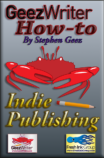Writing tips: Ten golden rules
Expert: Lee Dickinson

1 BE SUCCINCT
The golden rule. Be clear and concise. That means fewer words, avoiding such howlers as “proceeds from the event amounted to the total of”. Yes, a ‘professional’ writer did pen that. It was changed to: “The concert raised”. Three words, not nine. Clear. Concise. Job done.
2 MIMIC SPEECH
If I’m doing this properly, something amazing’s happening in your brain. There’s a voice. Hear it? That’s me. But I’m only there because these words mimic speech. Break that spell and the voice vanishes and you’re back to words on a screen. Keeping the speech illusion is an art these 10 tips will help you perfect. Great novelists mastered it. Do that too and your words will speak volumes.
3 GET THE RIGHT WORDS
Sounds obvious, but careless words cause most bad writing. Your first version might be brilliant but, usually, there’s something better. Do those first words say what you mean or are they the easy option? Being brilliant’s not about getting it right first time – it’s about getting it right. D H Lawrence did at least seven drafts of The Rainbow, and you’ll probably have to rethink a few times to be a better writer.
4 SIMPLIFY
Read even quality publications long enough and you’ll find “utilise” instead of ‘use’, “purchase” where ‘buy’ should be, maybe even “commence” for ‘start’. They add nothing to their simpler alternatives other than excess syllables. People don’t use them when they talk, so writing them breaks the illusion of speech. They also flout many of these other guidelines.
5 END WITH A BANG
If you knew a novel’s ending before the finish, would you read on? Sentences are similar. To keep your reader engaged, it’s usually best to place the line’s focus at the end.
6 SAY WHAT YOU MEAN
That is, don’t say what you don’t mean, which says the same thing as the title above badly. If you’re not happy, you might be sad, thoughtful or angry. Say that, then. Readers prefer to know what you are, not one of the thousands of things you’re not. Anything starting with ‘un’ should be a red flag.
7 WATCH FOR REPETITION
I might have to use a word more than once, maybe twice, many times, repeatedly, but where possible the same word should be avoided. Some words present more of a challenge, but you don’t need clumsy alternatives to the likes of ‘school’ and ‘hospital’ if you use, say, ‘the royal infirmary’. If an acronym’s used, the likes of Great Ormond Street Hospital can become “GOSH”. There’s usually an alternative, even if it’s a rewrite.
8 CUT ADVERBS
The only good thing about an adverb is they’re often obvious. Most end in ‘ly’ so, when you see that warning sign, ask if it’s needed and get (busily) chopping. If I’m chopping, I’m busy, so the adverb’s clutter. Using a stronger verb instead of an adverb doesn’t shout loudly, it screams. Adverbs are even worse when used to qualify powerful adjectives, when you’ll need to ask if they’re (absolutely) vital.
9 REMOVE EMPTY WORDS
I’m currently writing a sentence in which some of the words that I’ve just used are unnecessary. That’s a clumsy structure to make a point, because I’d write: I’m writing a sentence which wastes words. That cuts 17 words to seven, partly by removing some of the main empty-word offenders, namely ‘that’, ‘currently’ and ‘just’. They’re examples of words that creep into writing but only detract from it.
10 DON’T RELY ON A SPELLCHECKER
Use one, please, but expect it to miss howlers. In this lime, four examples, its nut goings too spots a singlet missed steak. It can’t tell a possessive from a plural, either, along with a host of other common grammatical errors. Spellcheckers are a useful tool, not a cure.
This article was written by Lee Dickinson. Lee’s a former writer on national magazines and newspapers and spent 20 years working as a sub-editor. He now works as a copy-editor, proofreader, copywriter and website designer at Word Wise Web.



